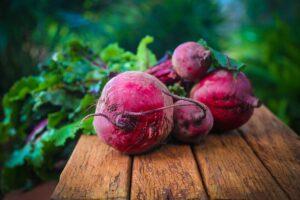Beetroot is an increasingly popular vegetable among producers and consumers
The area under beetroot cultivation in our country is increasing year by year, and thanks to the modernization of production, the average yield per hectare is also continuously increasing – this is revealed in the joint overview of the National Chamber of Agriculture and the Hungarian Vegetable and Fruit Association (FruitVeB).

(Photo: Pixabay)
Beetroot consumption is experiencing a renaissance in our country, thanks to the gastronomic revolution sweeping the country in recent years, beetroot has become fashionable again. In addition to restaurants, more and more housewives are getting acquainted with the versatile ingredient again. A significant part of the beetroot available in stores comes from domestic production, with only a small amount of imports appearing on the market at the end of the season.
The continuously increasing demand is no coincidence
Beetroot is a true superfood: it fits well into a healthy and balanced diet, and it is also available all year round. Beetroot is a vegetable that can be used in an extremely wide variety of ways. It can be used to make vegetable dishes, snacks, salads, soups, pickled, and desserts. Many people drink the vegetable juice, and it is a popular ingredient in smoothies. According to the National Chamber of Agriculture and the Hungarian Vegetable and Fruit Interprofessional Organization (FruitVeB), we produce beetroot on about 250–350 hectares in Hungary, in quantities of 10–20 thousand tons. The beetroot cultivation area in our country has been continuously expanding over the past five years, increasing by about 100 hectares. The reason for the expansion of the cultivation area may be that it can be easily integrated into the cropping structure, mainly due to the use of machinery, production is relatively predictable, and, incidentally, subsidies also act as an incentive. Thanks to more intensive production and the modernization of production technology, not only the area but also the average yield is constantly increasing. Production is also quite centralized, with a few companies engaged in beetroot cultivation in the country, serving as additional products alongside onions, potatoes and carrots during the supply of supermarket chains.
Beetroot is not called a superfood for nothing
It is a source of potassium, calcium, iron, silicon and magnesium, but also contains copper, zinc, manganese, sulfur, iodine, cobalt, chromium, nickel, vitamins B1, B2, B6 and C, folic acid, niacin and biotin. It helps with wound healing and the building of muscle tissue. Beetroot has a strong liver cleansing effect and also strengthens the intestinal tract. The betaine found in the vegetable helps break down fats, has a fat-burning effect, and with regular consumption we can also support the continuous renewal of the skin.
NAK
Related news
József Viski: Adaptation and competitiveness are key for the horticultural sector
🎧 Hallgasd a cikket: Lejátszás Szünet Folytatás Leállítás Nyelv: Auto…
Read more >In 2025, FruitVeB considered the support and professional coordination of the TÉSZs as its priority task
🎧 Hallgasd a cikket: Lejátszás Szünet Folytatás Leállítás Nyelv: Auto…
Read more >Related news
Innovations, success stories and awards on the same stage
🎧 Hallgasd a cikket: Lejátszás Szünet Folytatás Leállítás Nyelv: Auto…
Read more >Farewell day at the 60th anniversary EuroShop trade fair
🎧 Hallgasd a cikket: Lejátszás Szünet Folytatás Leállítás Nyelv: Auto…
Read more >







